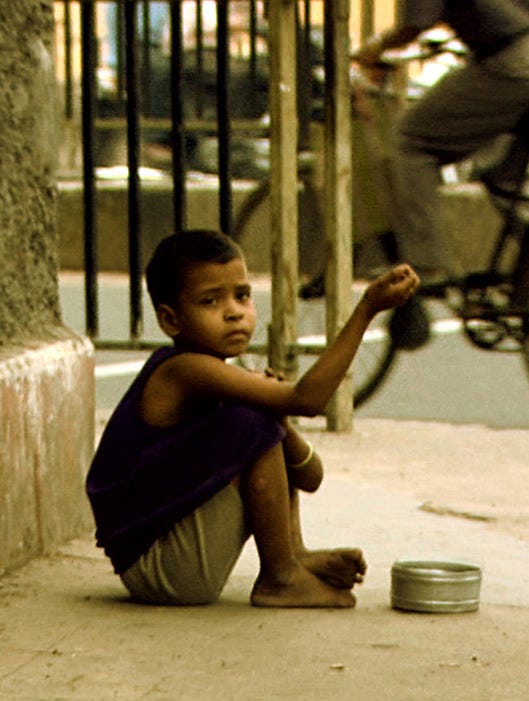Blind eye
I’ve just returned from a two week tour of Bangladesh. Crowned the happiest nation in the world by social researchers at LSE, one can sense the contentment that comes from simple living and high thinking. However, on a second-class overnight train from Chittagong to Dhaka I was confronted with the flip side of the story. A constant stream of desperate beggars petitioned passengers to lend a hand – they were frail, hungry and completely at the mercy of others. As we pulled into the dingy station, the platform was lined with a row of homeless bodies, struggling to catch some rest on the smelly stone cold floor. Past the ticket counters a leper boy perched on the shoulders of his blind friend investigated the trash cans for any useful scraps that may help them get through the day. It was a sorry sight.
Here we come face-to-face with acute poverty - graphic reminders that you don’t see every day in London. It was heart-wrenching, and it definitely made me think. As I studied the reactions of many people around me however, I couldn’t help but feel they were cold and uninterested. It could be that after years of daily exposure one becomes desensitized and emotionally indifferent to the struggles of others. It could just be practical measures. After all, who has the capability to give every beggar a dime, or even the time to politely decline? Either way, it would seem wrong to completely ignore the torment, suffering, pain and desperation that is a daily reality for millions of people worldwide. When you see that, your own life problems don’t really seem very significant anymore.
In my youth, I always found it uncomfortable and awkward to witness images of suffering. Change the channel, skip the newspaper article, or close your eyes – out of sight out of mind. Nevertheless, hard as I tried, I couldn’t seem to forget. Some of it was compassion, but a lot of it was guilt. I had everything while other kids had next to nothing. I’m sure these striking images left a deep impression that perhaps propelled me into a life of renunciation and spiritual welfare work, where I felt I could do my little bit to help the world. Seeing the desperately needy people on this trip rekindled those same emotions and reminded me of my deeper calling. The life of a spiritualist is a life of giving, a life of compassion, and a life of sacrifice for the upliftment of others. Selfless service in consciousness of God is the essence of spirituality. We find ourselves by forgetting about ourselves. Turning a blind eye to the pain of others is not really an option.


